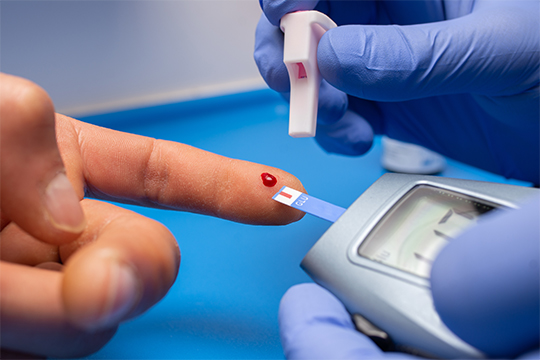Home > Disease and Treatments > Let’s glow Naturally: Best Foods for Healthy Skin
Let’s glow Naturally: Best Foods for Healthy Skin
Radiant skin starts from within. While skincare products play an essential role, your diet can significantly impact your skin's health and appearance. By choosing nutrient-rich foods, you can naturally achieve glowing, youthful skin. Here’s a comprehensive guide to the best vegetarian and non-vegetarian foods for skin health, along with additional tips for hydration, vitamins, and anti-inflammatory benefits. Royal Care Hospital’s dermatology team emphasizes the importance of a healthy diet alongside medical treatments for maintaining youthful and glowing skin.
Top Vegetarian Foods for Glowing Skin
Nuts and Seeds
- Benefits: Contain omega-3 fatty acids, zinc, and vitamin E, which support skin repair and protection.
- Examples: Almonds, walnuts, chia seeds, and flaxseeds are top choices.
Sweet Potatoes
- Benefits: Packed with beta-carotene, a precursor to vitamin A, which acts as a natural sunblock and keeps skin supple.
- How to Use: Bake or roast as a tasty side dish.
Spinach and Leafy Greens
- Benefits: A powerhouse of vitamins A, C, and E, plus antioxidants that repair and protect the skin.
- How to Use: Toss into salads, blend into smoothies, or sauté as a side dish.
Green Tea
- Benefits: Contains catechins that improve skin health by reducing inflammation and redness.
- How to Use: Sip on a warm cup daily for glowing skin benefits.
Carrots
- Benefits: Rich in beta-carotene, helping repair skin tissues and shield against sun damage.
- How to Use: Add to soups, salads, or enjoy raw as a snack.
Top Non-Vegetarian Foods for Glowing Skin
Fatty Fish
- Benefits: High in omega-3 fatty acids, which reduce inflammation and keep the skin hydrated.
- Examples: Salmon, mackerel, and sardines.
Eggs
- Benefits: Packed with protein, biotin, and vitamins essential for skin repair and strength.
- How to Use: Include in omelets, salads, or as a protein-packed snack.
Chicken
- Benefits: A great source of protein that aids in collagen production and skin repair.
- How to Use: Add to soups, salads, or main dishes for a balanced meal.
Bone Broth
- Benefits: Contains collagen and amino acids that improve skin elasticity and reduce wrinkles.
- How to Use: Drink as a warm broth or use as a base for soups and stews.
Lamb
- Benefits: Rich in protein and iron, vital for maintaining skin health and rejuvenation.
- How to Use: Opt for lean cuts and pair with vegetables for a nutritious meal.
Additional Tips for Radiant Skin
Hydration for Glowing Skin
- Why It’s Important: Staying hydrated flushes out toxins and keeps the skin plump and radiant.
- Hydrating Foods: Include water-rich foods like cucumbers, watermelon, and oranges in your diet.
Anti-Inflammatory Foods
- Turmeric: Contains curcumin, a potent anti-inflammatory compound that reduces redness and promotes skin healing.
- Ginger: Helps soothe skin irritation and enhances circulation for a natural glow.
Your diet plays a significant role in achieving healthy, glowing skin. Incorporate these nutrient-rich foods into your meals to nourish your skin from within. Combine this with proper hydration, regular exercise, and a good skincare routine for long-lasting radiance. Embrace the power of food and let your natural glow shine through!





